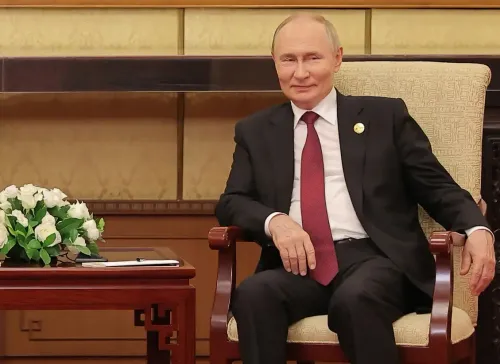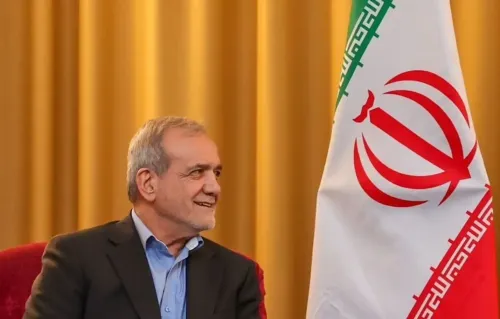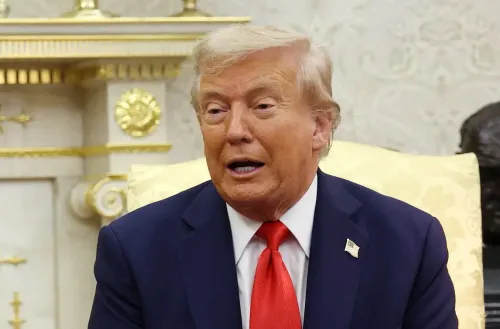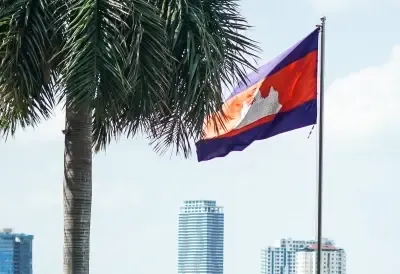ISI’s Bangladesh Blueprint: Are Jamaat and Hefazat Leading the Country Towards Talibanisation?

Synopsis
Key Takeaways
- The political landscape in Bangladesh is shifting dramatically.
- Radical groups are pushing for a regression in women's rights.
- The influence of Jamaat-e-Islami is significant in this movement.
- International pressure may be necessary to protect civil liberties.
- Bangladesh risks becoming a Talibanized state if the trend continues.
New Delhi, Sep 4 (NationPress) The enforced regime change in Bangladesh was intended to steer the nation in a positive direction. However, under the guidance of Mohammad Yunus, almost every aspect, including human rights and women's rights, appears to be declining.
Before the COVID-19 pandemic, the nation was witnessing progress in economic development and had also ensured social stability. Yunus, often viewed as a puppet of Jamaat-e-Islami, has seemingly succumbed to the Pakistan trap. Intelligence reports suggest that the ISI desires a return to Bangladesh's pre-1971 state.
In a remarkably brief period, this regression has begun. There is minimal attention to women's rights, and the safeguarding of minority rights appears to be a distant dream. With radical Islamist factions, influenced by the Jamaat, gaining control, a Taliban-style moral policing is swiftly becoming prevalent. Instances of women being publicly shamed for immodest attire are on the rise, with reports of assaults against women for their clothing choices.
A prominent force driving the establishment of this Taliban-like regime is the Hefazat-e-Islam (HeI). This group seeks to keep women suppressed and has consistently resisted all initiatives advocating for women’s rights. The HeI firmly states that men and women cannot be regarded as equals and has organized protests against reforms proposed by the Women’s Affairs Reform Commission.
The reforms they oppose include criminalizing marital rape, ensuring equal rights for women irrespective of religion, ethnicity, or class, guaranteeing equal parental rights, protecting women's inheritance rights, increasing women’s representation in parliament, safeguarding the rights of sex workers, creating a society free from gender-based violence, and empowering women through education and skill development.
The Hefazat-e-Islam has been vocally advocating for the Talibanisation of Bangladesh, promoting the notion that women should not hold equality with men. With strong ties to the ISI and Jamaat, they have articulated their anti-India stance. In 2021, clashes erupted between HeI members and supporters of the Awami League who were attempting to thwart a protest against Indian Prime Minister Narendra Modi. The HeI aimed to express their disdain by waving slippers at the Indian PM, resulting in violent confrontations.
Indian intelligence suggests that the rise of the HeI has been swift since the fall of the Sheikh Hasina government. The group, which had previously adopted a moderate stance, has reverted to radicalism. Although the Yunus administration has made some attempts at reforms, the Jamaat has unleashed the HeI to counter these efforts.
While the HeI denies any affiliation with the Jamaat, there are accusations that its primary goal is to obstruct the International Crimes Tribunal concerning the war crimes of 1971.
The HeI appears to follow a distinct pattern, sending mixed signals to security forces. Maualana Habibur Rehman, a madrasa principal from Sylhet and an organizer of the HeI’s protests on May 5, 2013, claimed to have met Osama Bin Laden and members of Harkat-ul-Jihad al-Islami. However, other HeI leaders have condemned Al-Qaeda, asserting that such groups would never flourish in Bangladesh. This may be a tactic by the HeI to avoid scrutiny and prevent being banned.
The HeI was established in 2010 to challenge Sheikh Hasina's government’s women’s development policies, which advocated for equal property rights for women. Now, with Hasina absent from power, the group is reasserting its demands, bolstered by the Jamaat, which exerts significant influence over the current administration.
As these hardliners resurface and the Yunus government struggles to rein them in, Bangladesh faces the peril of evolving into a Talibanized state.









